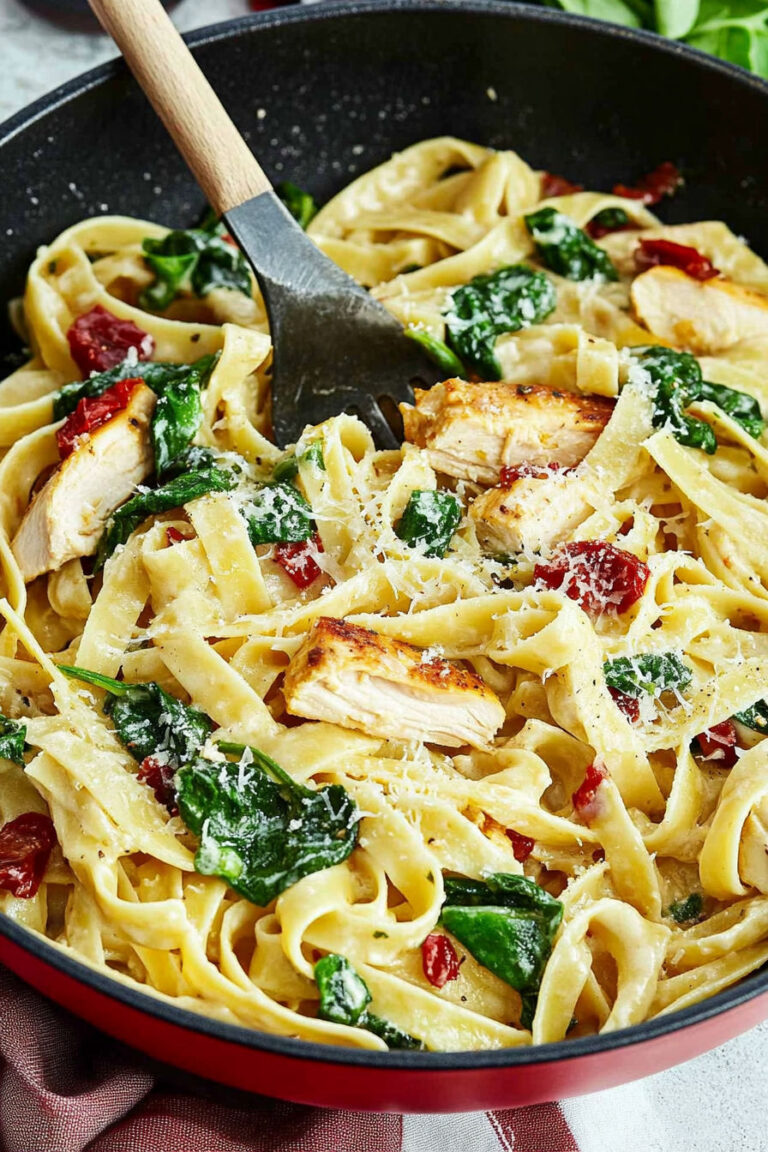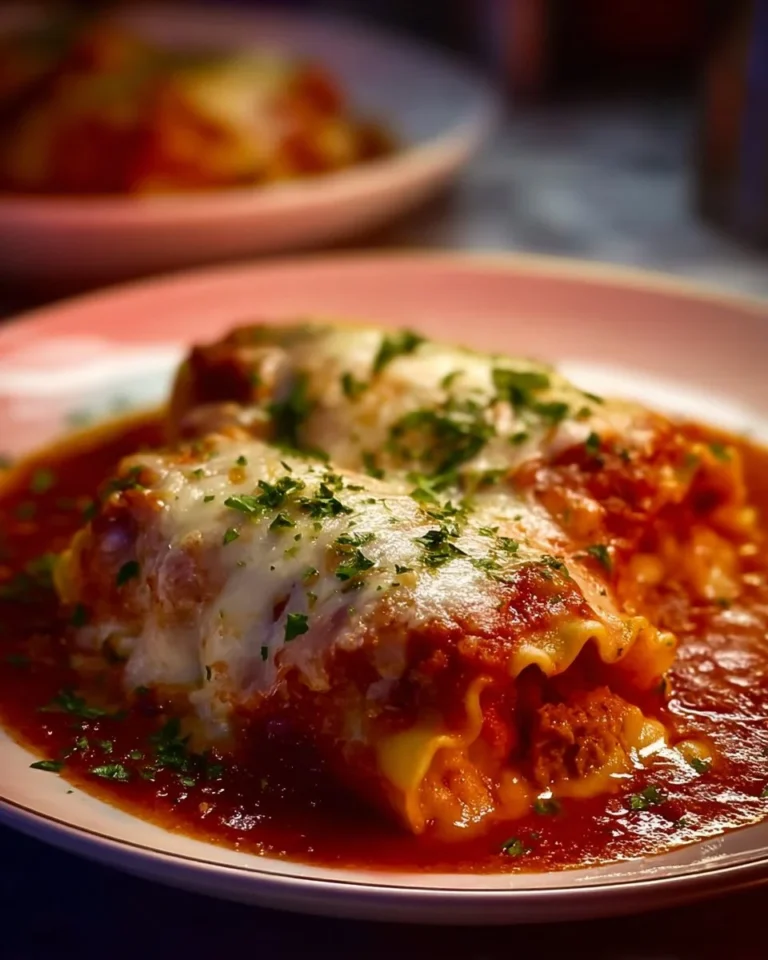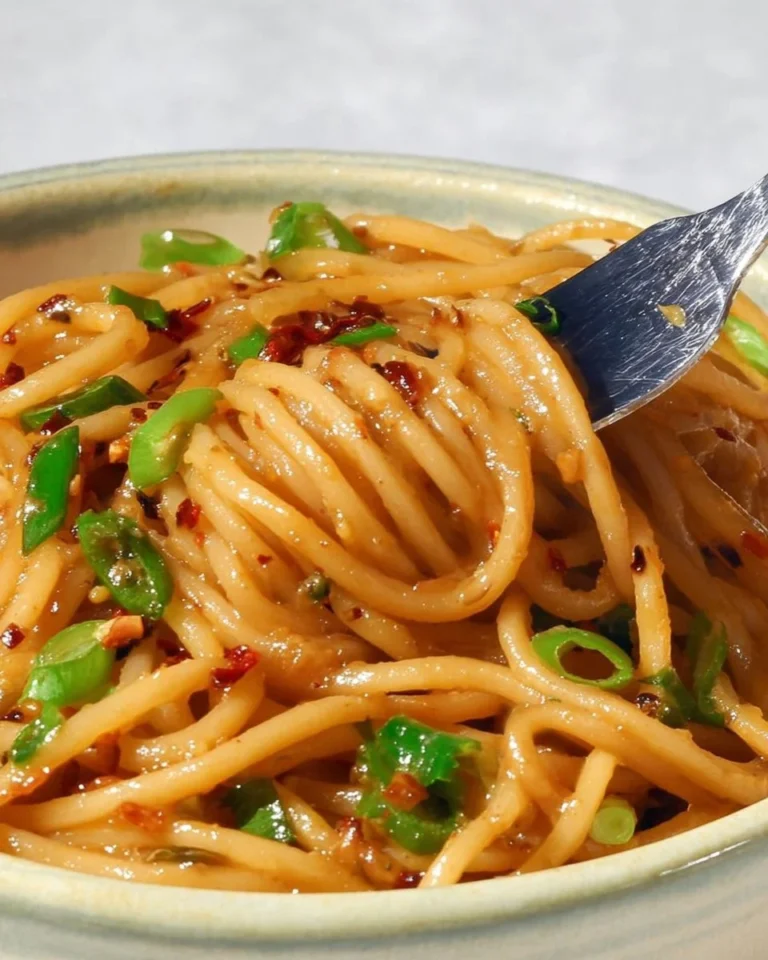Authentic Italian Fresh Homemade Pasta
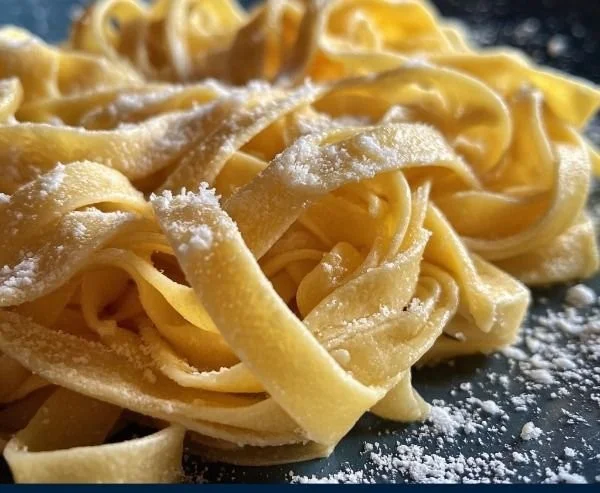

Experience the Joy of Homemade Pasta
There’s something incredibly rewarding about making your own pasta from scratch, a culinary adventure that connects you to Italian tradition right in your kitchen. I remember the first time I made fresh homemade pasta; it was both an art and a labor of love. The way the dough comes together and transforms under your hands brings a sense of satisfaction that store-bought pasta simply can’t replicate. Perfect for a cozy family dinner, celebratory meals, or even a casual weeknight supper, this authentic Italian dish embodies comfort and creativity.
What Makes This Recipe Special
Why put in the effort to make pasta when you can easily buy it? Here’s why you’ll want to try your hand at this recipe:
- Authenticity: This recipe uses simple ingredients, just like the Italians do, resulting in a texture and flavor that’s truly rich and satisfying.
- Customization: You can shape this pasta however you like, from fettuccine to lasagna sheets, making it perfect for varied dishes.
- Freshness: There’s no comparison to the taste of fresh pasta; it cooks quickly and has a delicate texture that absorbs sauces beautifully.
- Family Fun: Cooking pasta together can be a fantastic family activity, especially when kids join in to help with the rolling and cutting.
"Making this pasta was an absolute game-changer for our family dinners! The texture and flavor were incredible—I’ll never go back to store-bought again!"
Preparing Authentic Italian Fresh Homemade Pasta
Creating delicious fresh pasta at home is a straightforward process that involves a few key steps. You will be mounding flour, mixing in eggs, kneading, and rolling—definitely a hands-on experience that’s a joy to behold.
- Prepare your ingredients.
- Create the dough.
- Let it rest.
- Roll and cut the pasta into your desired shape.
- Cook and enjoy!
Gather These Items


To make authentic homemade pasta, you will need:
- 2 cups (250 grams) all-purpose flour, plus extra for dusting
- 3 large eggs
- 1/2 teaspoon salt
- 1 tablespoon olive oil (optional)
- Semolina flour or additional all-purpose flour, for dusting
Optional substitutions: If you’re looking for a healthier twist, you can try whole wheat flour or a gluten-free blend. Just ensure your measurements remain consistent!
Step-by-Step Instructions
Follow these clear instructions to transform simple ingredients into a delightful dish.
Form the Flour Mound: Place the flour on a clean work surface and create a mound. Make a well in the center and sprinkle with salt.
Mix the Ingredients: Crack the eggs into the well. If you’re using olive oil, add it too. Beat the eggs gently with a fork, gradually bringing the flour into the mixture until it starts to form a dough.
Knead the Dough: Once the mixture is mostly combined, use your hands to knead the dough for 8-10 minutes. You want it to be smooth, elastic, and slightly tacky, but not sticky.
Rest the Dough: Wrap the dough in plastic wrap and set it aside at room temperature for at least 30 minutes. This resting time allows the gluten to relax, making rolling easier.
Roll the Dough: Dust your work surface with semolina or extra flour. Cut the rested dough into four pieces, keeping unused portions covered. Roll one piece out using a pasta machine or rolling pin, progressively moving to thinner settings until it’s about 1-2 mm thick.
Cut into Shapes: Cut the rolled-out pasta into your desired shapes (like fettuccine or sheets) using a sharp knife or pasta cutter.
Dust to Prevent Sticking: Sprinkle the cut pasta with semolina flour to keep it from sticking together. Lay it flat on a clean surface or hang it over a drying rack.
Cook the Pasta: Bring a large pot of salted water to a boil. Add the fresh pasta and cook for 2-4 minutes until it’s al dente. Fresh pasta cooks much faster than dried varieties!
Serve: Drain the pasta and serve immediately with your preferred sauce.
How to Plate and Pair Your Pasta
Homemade pasta is incredibly versatile. Consider these serving suggestions:
- Classic Pairing: Toss with a simple marinara sauce, fresh basil, and grated Parmesan.
- Rich Flavors: Serve with a creamy Alfredo sauce and sautéed mushrooms for extra depth.
- Fresh Accents: Top with fresh vegetables and a drizzle of olive oil for a light and healthy option.
Keeping Leftovers Fresh
After you’ve enjoyed your delicious homemade pasta, proper storage is key to maintaining its quality:
- Refrigerating: If you have leftovers, store them in an airtight container in the fridge for up to 3 days.
- Freezing: You can also freeze the uncooked pasta for later use. Dust it with semolina, place it in a single layer on a baking sheet, and freeze until solid. Then transfer to a freezer bag for up to 3 months.
Pro Chef Tips
Here are some insider secrets for making your pasta a success:
- Flour Types: Experiment with blending all-purpose flour with semolina or ‘00’ flour for a different texture.
- Resting is Key: Don’t skip the resting period as it significantly affects the dough’s stretchability.
- Cooling Times: If you’re not cooking the pasta immediately, ensure it cools properly to prevent clumping.
Explore Creative Twists
Feeling adventurous? Here are some variations you can try:
- Herb-Infused Dough: Add finely chopped herbs like basil or spinach to the dough for color and flavor.
- Colorful Pasta: Incorporate beetroot or squid ink into the dough for stunning hues.
- Different Shapes: Play around with shapes, like making filled pasta varieties such as ravioli instead of flat noodle types.
Your Questions Answered
How long does it take to make fresh pasta?
From start to finish, including resting time, expect the process to take about 1.5 to 2 hours.
Can I substitute the eggs?
While eggs are traditional for rich pasta, you can try using a combination of water and flour for egg-free versions, though the texture will differ.
How can I adjust for dietary restrictions?
If gluten-free is a priority, use a gluten-free flour blend and adjust moisture accordingly, as it may require tweaking with additional liquid.
Homemade pasta opens up a world of flavors and textures that can elevate any meal. With this simple recipe, you can embrace Italian culinary traditions right at home, savoring each bite as an expression of love and creativity.
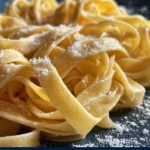

Fresh Homemade Pasta
Ingredients
Method
- Form the Flour Mound: Place the flour on a clean work surface and create a mound. Make a well in the center and sprinkle with salt.
- Mix the Ingredients: Crack the eggs into the well. If you’re using olive oil, add it too. Beat the eggs gently with a fork, gradually bringing the flour into the mixture until it starts to form a dough.
- Knead the Dough: Once the mixture is mostly combined, use your hands to knead the dough for 8-10 minutes. You want it to be smooth, elastic, and slightly tacky, but not sticky.
- Rest the Dough: Wrap the dough in plastic wrap and set it aside at room temperature for at least 30 minutes.
- Roll the Dough: Dust your work surface with semolina or extra flour. Cut the rested dough into four pieces, keeping unused portions covered. Roll one piece out until it’s about 1-2 mm thick.
- Cut into Shapes: Cut the rolled-out pasta into your desired shapes (like fettuccine or sheets) using a sharp knife or pasta cutter.
- Dust to Prevent Sticking: Sprinkle the cut pasta with semolina flour to keep it from sticking together.
- Cook the Pasta: Bring a large pot of salted water to a boil. Add the fresh pasta and cook for 2-4 minutes until it’s al dente.
- Serve: Drain the pasta and serve immediately with your preferred sauce.

